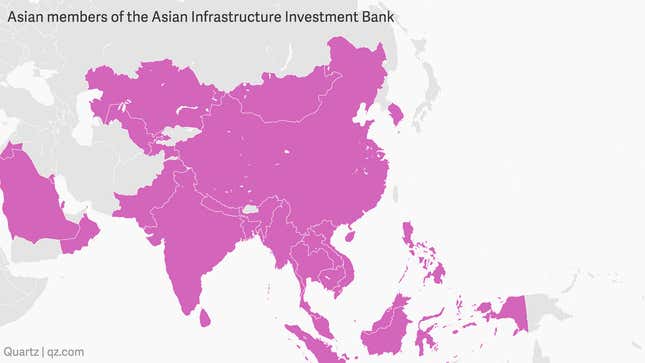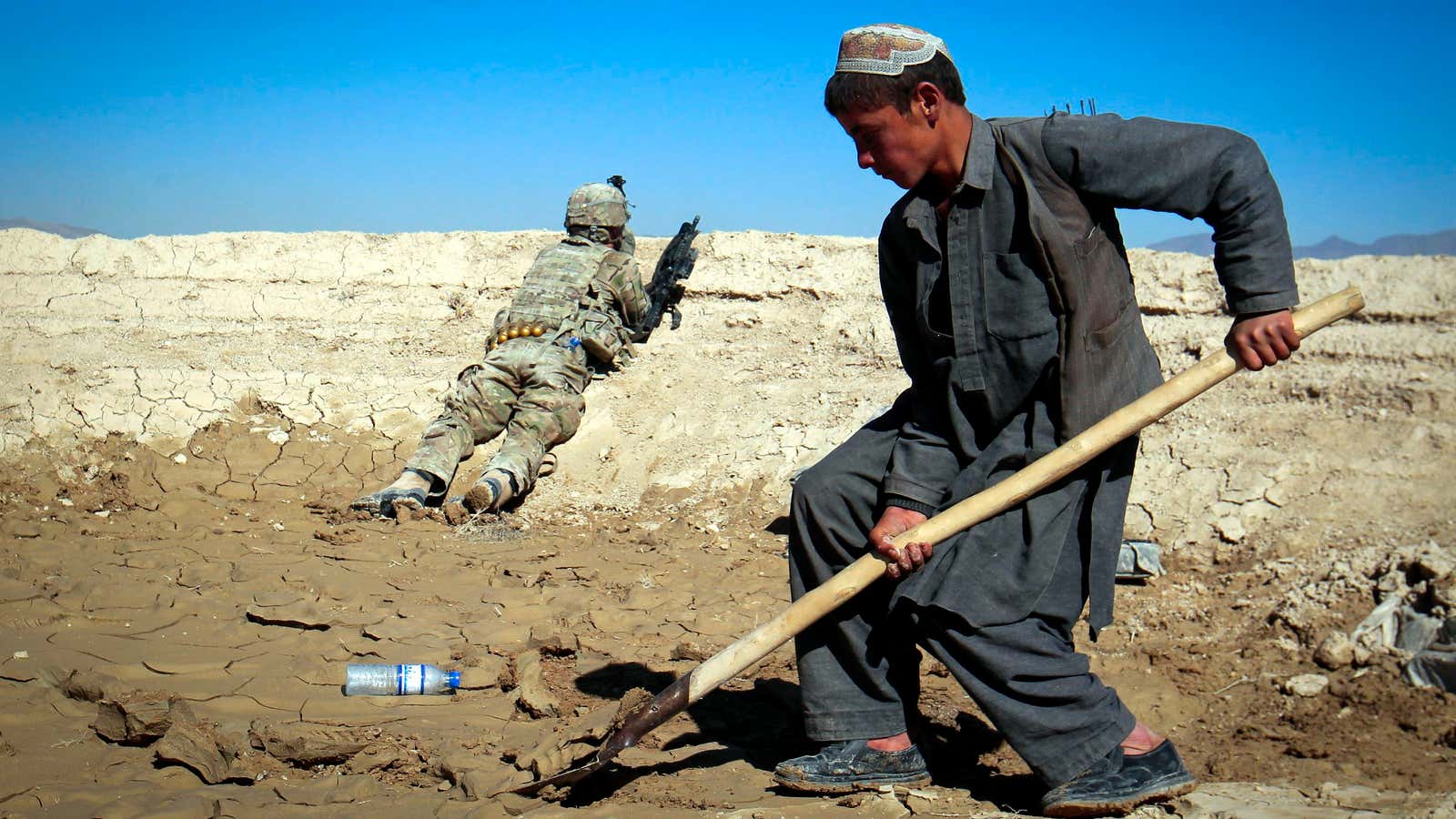Ashraf Ghani, the president of Afghanistan, plans to remake his war-torn country’s economy by relying on its traditional geographic advantage as the crossroads of Europe, the Middle East and Asia. It’s a plan that could leave the US with diminishing influence, even as it bears the costs of the country’s security.
Ghani, a former World Bank official, stressed regional ties and infrastructure investment as the key to a prosperity at a Council on Foreign Relations event in New York City today, March 26.
For example: Pakistan is short on electricity, but Tajikstan is over-flowing with power from Soviet-era hydro electric projects. So string wires across Afghanistan. Need a trade route from China to Iran? Build railway lines across Afghanistan. There are inter-continental fiber optic lines to lay, and roads to pave. There will be dams, and mines for copper and rare earth metals—”we are the Saudi Arabia of Lithium,” Ghani said.
Of course, all that may be little more than a pleasant imagining, given the instability in Afghanistan, still home to a civil conflict with the Taliban, a melange of extremist groups, and the inevitable regional warlords. Ghani argued that the country’s security forces, and the inclusion of more citizens in economic projects, could help bring some stability—along with plans for the US to extend the deployment of its military forces, and continue funding the Afghan police.
But despite US investment in the country’s security, Ghani didn’t mention the US as an economic partner. India, the Gulf countries, Azerbaijan, even its prickly neighbor Pakistan were all floated as potential investors. China was highlighted most of all. Robert Rubin, the former US Treasury Secretary who interviewed Ghani, pointedly asked if most of Afghanistan’s foreign investment would come from China. “We take a consortium approach to building infrastructure,” the president replied.
You know what else takes a consortium approach to building infrastructure? The new Asian Infrastructure Investment Bank, a China-led international financial institution. The AIIB has been opposed by the US from the get-go, since it dilutes US influence at the World Bank and International Monetary Fund, but even staunch US allies in Europe like France, the United Kingdom and Germany, and now South Korea, have signed on to participate in the new institution. Japan probably isn’t too far behind. Its membership happens to include numerous countries bordering Afghanistan.

The US failure to join the bank, compounded by its failed effort to lobby traditional allies out of it, has been a black eye for US financial diplomacy. “The US has been totally isolated and wound up in a very foolish and awkward position,” C. Fred Bergsten, a senior fellow at the Peterson Institute for International Economics, and a former US official, said. “The US will have to find a way to save face and reverse course to join the thing.”
Until then, the US could find itself spending millions to create a secure investment environment for its Asian rivals.
